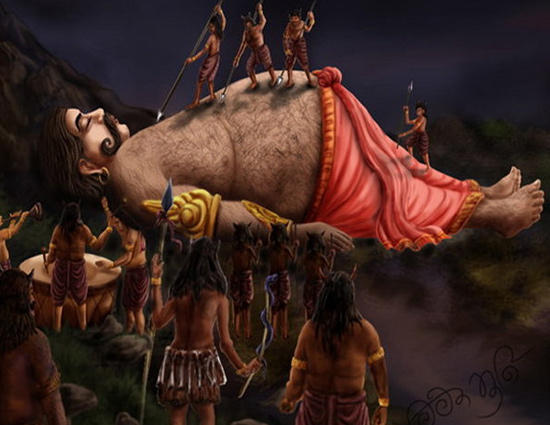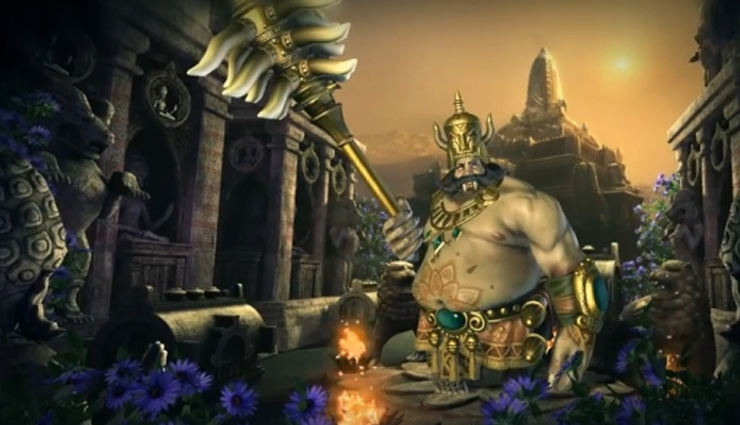
When Bibhisana heard that Kumbhakarna was ready for battle he said this to Rama, ‘My Lord there is another great danger, we must be very careful because this Khumbakarna is more dangerous a devil than you have ever seen.’ It is true that simply by hearing about spirituality is a form of Kumbhakarna for you may forget about spiritual development and prefer to gather so many external fantasies and rules and regulations about spirituality. By simply listening to words of spirituality you may come to a state where you feel you know everything, you have all the knowledge, this is a deviation from practical meditation and is almost like a constant sleeping darkness.
Here, Bibhisana, with firm determination, with divine determination, suggested, ‘My Lord, these are the characters of Kumbhakarna. The only one who is able to kill him is firstly, the one who has had no sleep, day or night, for fourteen years and secondly, the one who has also eaten nothing for the past fourteen years.’
Rama was in trouble, he said, ‘From where shall I get such a person?’
Then Laxman said, ‘I am the one, I have been living for the past fourteen years without eating and sleeping, so I am his challenger.’

Then Ravana was very angry and replied, ‘I do not want to listen to such weakness and discouraging words from my brother, you speak like a coward. Do not forget that you are the brother of Ravana.’
Kumbhakarna was very unhappy and said, ‘My brother, never was I weak, never was I a coward, but one has to admit the truth. I am your younger brother, I cannot give you any suggestions but, tomorrow I am going to fight, if I win then it is okay but if I die I pray that you will surrender and save Swarna Lanka.’On the next day battle Kumbhakarna was killed.
The metaphorical meaning of this last part is in seeing the contrast. One is sleeping and eating, the devil characters, the divine character is not sleeping and not eating. One is waking up once in every six months the other has had no sleep, or food, for fourteen years. The gati of our pranavaya (the flow of our pranavaya) is in the chandrayana movement (the movement of the moon). Fourteen is chaturdashi in uttarayana and dakshinayana, the day between fourteen and the first day of the lunar increasing or decreasing cycle is called ‘amabasya’ or ‘purnima’. Amabasya is the dark night and purnima is the bright night. Here the comparison between Kumbhakarna and Laxman is the dark and the bright. Of course, darkness can be removed by the brightness, by the light, by illumination but on the other hand even a little light cannot be removed by darkness. The winner will always be the bright but in the course there are many hurdles and problems that have to be overcome. It is here that the honest warning for the spiritual practitioner can be found: one ounce of practice is far better than tons of theories. Practice, practice and practice makes a man perfect. Listen as little as possible to speeches of spirituality.